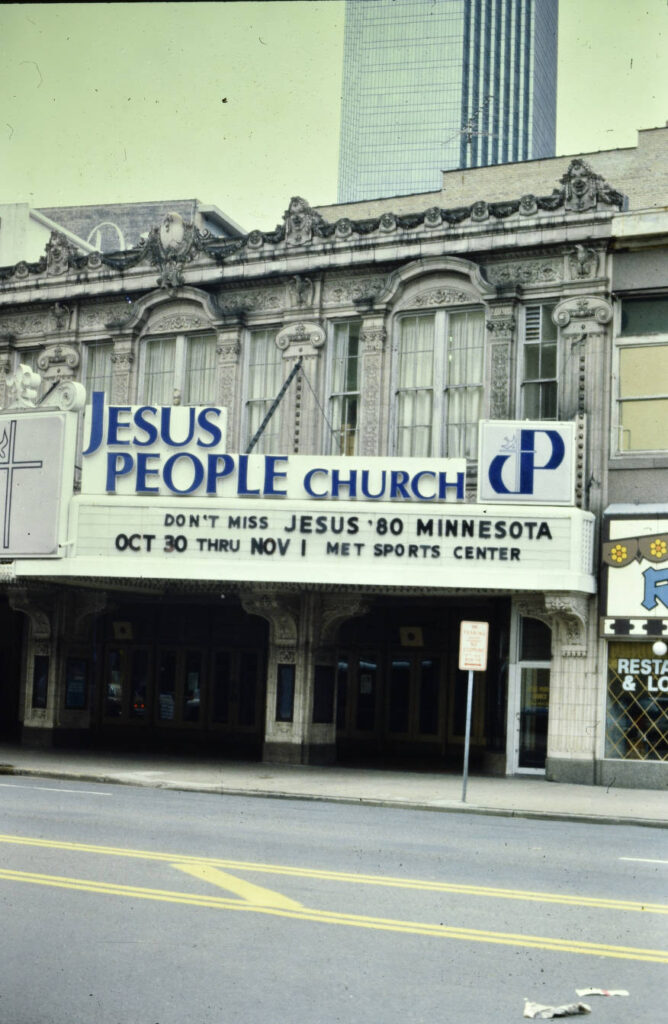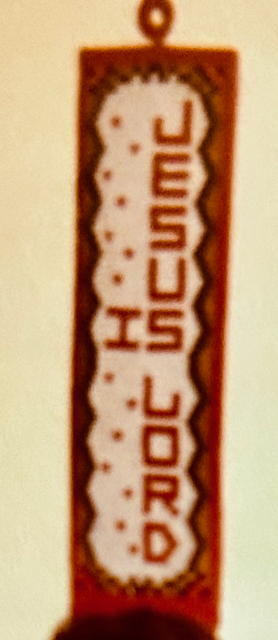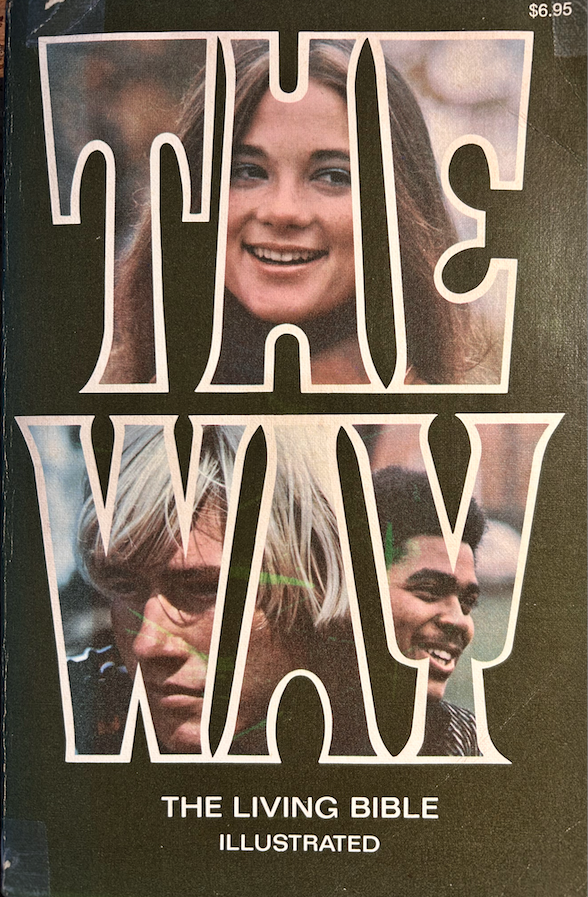
People are talking about the Jesus Movement a lot again lately. It is a subject that endlessly fascinates me as I grew up on the tail end of it as a kid. My memories of it are just hazy, but still it was something of the water that we swam in back then. Keith Green was (and is) a hero of mine. Reading about the movement now and knowing what I know, it is easy to see its many, many failings. Sexual failings in particular seem to go right back to the start of it, as well as bad doctrine and idolization of musicians that I contend has mostly been a plague on the church in the decades since the Sixties.
My Mom was anything but a hippie, she grew up Lutheran in the 40’s and 50’s, and yet she dated her life as a Christian to 1967. In her words:
I had attended church, taught Sunday school, been active in a women’s group at church, but didn’t know Jesus. I would watch Billy Graham on t.v. & be amazed at his assurance of salvation. When he said, “you must believe on the Lord Jesus Christ” I would think, “I believe,” maybe if I’d quit smoking I’d have assurance.
In the fall of ‘67 Bill Bright came to Mpls. with the Lay Institute for Evangelism. I was attending a small church & thought about going to it to learn how to get more members for our church. I had just thought about it — & then a lady from church called & said our pastor had asked her to go as our church representative — & she wasn’t able to make it, & asked if I would go in her place. Praise God for His workings in our lives!
As I said, I thought I was a Christian, but was troubled not having the assurance that if I died I would go to heaven. I don’t remember much of what Bill Bright said that day — but this I do remember –
He spoke on John 10:10 Jesus said, “I have come that you might have life & that you might have it more abundantly.” Bill Bright asked, “Do you have the abundant life? And if not, why not? That is what Jesus came to give!” That clicked in my heart — I knew I did not have the abundant life — & that’s what I wanted.
Mom had grown up Lutheran, baptized, confirmed, teaching Sunday School, etc. but thought she had no assurance of her faith under that system. I think she was indeed regenerate and united to God’s people, but this moment with Bill Bright served to awaken faith in her and set her on a new course. She ended up leaving the Lutheran Church in part because they put out the word that if you spoke in tongues, you needed to leave. At least that is what she told me so it’s how she took it.

Although we ended up in a very sober, mildly charismatic church, she spent time at the local Jesus People Church and was rebaptized there in 1977. I assume she questioned the validity of her infant baptism as a Lutheran due to teaching within those circles.
She found local believing women that she connected with. She attended women’s AGLOW meetings regularly, and dedicated her life to prayer and Scripture reading. She experienced the baptism of the Holy Spirit and sought to speak in tongues. I have memories of song from the Jesus Movement like this for example:
All of those songs seemed more reverent than most things today. Maybe because they were usually straight from Scripture, and most Scripture at that time was King James! Lots of songs with “Thy” and “longeth after Thee” as opposed to the familiar language that is now our norm.
Some of the physical signs of the movement that I grew up around, although totally unaware of their origin, included things like banners and sayings on our walls at home, such as:


And although we may laugh at the tackiness of Bibles like this:

It was a time where the Bible was central and seeing people carrying huge, marked-up Bibles was the norm. Perhaps that is still the case in some circles, but it certainly isn’t in the Anglican churches that I am now a part of. In fact it is rare to see someone bringing a Bible to church. Yes, we have them in the pews, and yes, we probably hear more Bible read during the service than I ever did back then, but that idea of personal study of, and mastery of, the Bible, is missing.
Unfortunately I think that the yearning for the Second Coming due to bad dispensational theology sucked up a lot of energy that might have been better spent learning from solid sources, but then as now, if those sources were all looking down on you and writing you off, would you go to them for teaching? Gary North was probably an exception in this regard, as he tried to make common cause with charismatics to create a larger project.
As I see it now, the fruit of the movement was very mixed. Lots of charlatans, people who fell away, people who ended up in the word of faith movement or cults. Lots of divorce. Lots of people who stayed in the milk stage instead of moving to meat. And yet I cannot write it all off because of people like my Mom. Housewives and other faithful, ordinary saints who were rekindled and put on a path of faithfulness for the rest of their lives. We won’t know the true story of it all until we are reading it in a library in the new heavens and new earth some thousands of years from now, but I suspect there is a lot of good mixed in with the bad, as there seem to be with most of our history.
Leave a Reply